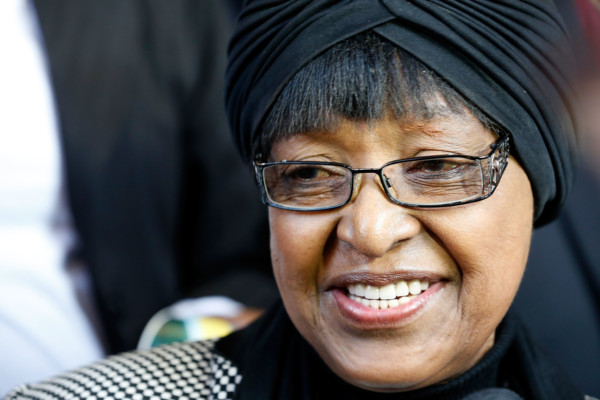
South African anti-apartheid activist Winnie Madikizela-Mandela died peacefully on Monday after protracted illness, a family spokesman said.
Madikizela-Mandela died peacefully surrounded by her family following a long illness that had kept her in and out of hospital since the start of the year, Victor Dlamini said in a statement.
“She fought valiantly against the apartheid state and sacrificed her life for the freedom of the country,” the statement said.
“She succumbed peacefully in the early hours of Monday afternoon surrounded by her family and loved ones.”
In her twilight years, Madikizela-Mandela, who died aged 81, had frequent run-ins with authority that further undermined her reputation as a fighter against the white-minority regime that ran Africa’s most advanced economy from 1948 to 1994.
During her husband’s 27-year incarceration, Madikizela-Mandela campaigned tirelessly for his release and for the rights of black South Africans, suffering years of detention, banishment and arrest by the white authorities.
She remained steadfast and unbowed throughout, emerging to punch the air triumphantly in the clenched-fist salute of black power as she walked hand-in-hand with Mandela out of Cape Town’s Victor Vester prison on Feb. 11, 1990.
For husband and wife, it was a crowning moment that led four years later to the end of centuries of white domination when Mandela became South Africa’s first black president.
For Madikizela-Mandela, the end of apartheid marked the start of a string of legal and political troubles that, accompanied by tales of her glamorous living, kept her in the spotlight for all the wrong reasons.
Blamed for the killing of activist Stompie Seipei, who was found near her Soweto home with his throat cut, she was convicted in 1991 of kidnapping and assaulting the 14-year-old because he was suspected of being an informer.
Her six-year jail term was reduced on appeal to a fine.
She and Mandela separated in 1992 and her reputation slipped further when he sacked her from his cabinet in 1995 after allegations of corruption.
The couple divorced a year later, after which she adopted the surname Madikizela-Mandela.
Appearing at the Truth and Reconciliation Commission (TRC) set up to unearth atrocities committed by both sides in the anti-apartheid struggle, Madikizela-Mandela refused to show remorse for abductions and murders carried out in her name.
Only after pleading from anguished TRC chairman Archbishop Desmond Tutu did she admit grudgingly that “things went horribly wrong”.
In its final report, the TRC ruled that Madikizela-Mandela was “politically and morally accountable for the gross violations of human rights committed by the Mandela United Football Club” (MUFC).
Four years later, she was back in court, facing fraud and theft charges in relation to an elaborate bank loan scheme.
“Somewhere it seems that something went wrong,” magistrate Peet Johnson said as he sentenced her to five years in jail, later overturned on appeal. “You should set the example for all of us.”
Born on Sept. 26, 1936, in Bizana, Eastern Cape province, Madikizela-Mandela became politicised at an early age in her job as a hospital social worker.
“I started to realize the abject poverty under which most people were forced to live, the appalling conditions created by the inequalities of the system,” she once said.
Strikingly attractive and with a steely air – her given name, Nomzamo, means ‘one who strives’ – the 22-year-old Winnie caught the eye of Mandela at a Soweto bus-stop in 1957, starting a whirlwind romance that led to their marriage a year later.
Reuters/NAN
https://www.africaprimenews.com/2018/03/25/business/south-africa-government-welcomes-moodys-decision/